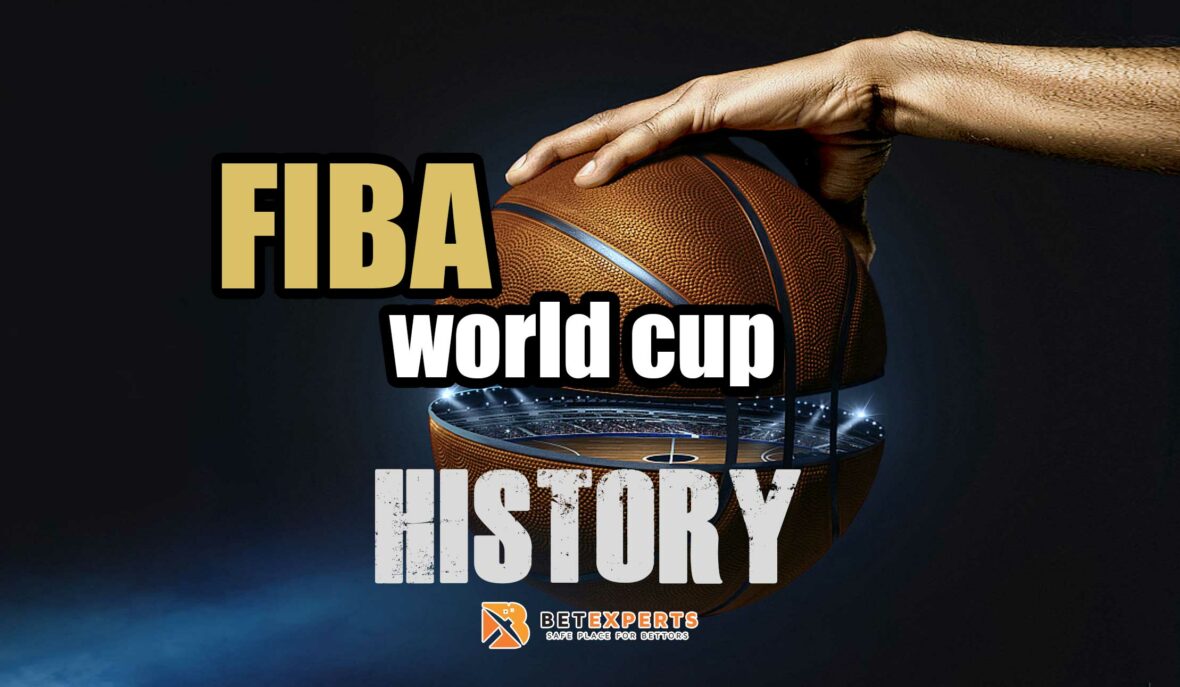A Journey Through the History of the FIBA Basketball World Cup

For basketball aficionados around the globe, the FIBA Basketball World Cup stands as a true testament to the spirit of competition, camaraderie, and sporting excellence. Since its inception, this quadrennial international basketball championship has captivated audiences and united nations in the pursuit of the ultimate glory on the hardwood. Let’s embark on a journey through time to explore the rich and vibrant history of the FIBA Basketball World Cup, a tale of triumphs, heartbreaks, and the evolution of a global sporting spectacle.
Inauguration and Early Days (1950-1978)
The roots of the FIBA Basketball World Cup trace back to 1950, when the inaugural edition took place in Argentina. Featuring a modest six teams, the tournament marked the beginning of a legacy that would grow to encompass the entire globe. Argentina, Chile, the United States, France, Brazil, and Uruguay graced the court in that historic event, with Argentina emerging as the first champion. This modest beginning paved the way for the growth and transformation of the World Cup into the international phenomenon we know today.
Over the years, the tournament gradually expanded, both in terms of participating teams and global recognition. The early editions saw the emergence of basketball powerhouses like the Soviet Union and Yugoslavia, as well as the consolidation of the United States’ dominance in the basketball arena. The 1970s witnessed the tournament becoming a true global spectacle, with television broadcasts reaching an ever-growing audience and captivating fans from diverse cultures and backgrounds.
The Rise of Basketball Titans (1982-1998)
The 1980s marked a significant turning point for the FIBA Basketball World Cup, as it continued to evolve into a grand celebration of international basketball. The tournament expanded to accommodate more teams, enhancing the inclusivity and diversity of the competition. The decade saw a fierce battle for supremacy among basketball titans, with the United States, the Soviet Union, Yugoslavia, and Spain among the leading contenders.
In 1992, a historic moment forever altered the landscape of basketball. The inclusion of professional players in the Olympics, commonly known as the “Dream Team,” showcased the extraordinary talent and star power that the sport had to offer. This move not only elevated the FIBA Basketball World Cup but also fueled the globalization of basketball, inspiring players and fans alike to embrace the game’s universal appeal.
Globalization and Modernization (2002-2010)
As the new millennium dawned, the FIBA Basketball World Cup continued to evolve, reflecting the changing dynamics of the global sports landscape. The tournament underwent a significant overhaul, both in terms of its format and its reach. The number of participating teams increased, providing a platform for emerging basketball nations to showcase their skills on a global stage.
The era also witnessed the emergence of new contenders, challenging the traditional basketball powerhouses. Nations like Argentina, Spain, and Greece made their presence felt, dazzling fans with their unique playing styles and unrelenting determination. The FIBA Basketball World Cup transformed into a truly global event, transcending borders and uniting people through their shared love for the game.
A New Horizon: The 21st Century and Beyond (2014-Present)
The 21st century has witnessed a reinvigorated FIBA Basketball World Cup, fueled by innovation, passion, and a renewed commitment to excellence. The tournament has continued to adapt and respond to the ever-changing demands of the modern sports landscape. With advancements in technology and communication, fans from all corners of the world can now experience the excitement and drama of the World Cup in real time, forging a global community of basketball enthusiasts.
The recent editions of the FIBA Basketball World Cup have showcased a more level playing field, where upsets and surprises have become the norm. The influx of international talent into the NBA has further enriched the competitive landscape, as players from different continents bring their unique skills and styles to the forefront.
The FIBA Basketball World Cup has not only evolved as a showcase of athletic prowess but also as a platform for cultural exchange and understanding. The tournament serves as a celebration of diversity, fostering connections between individuals and nations through the universal language of basketball.
Conclusion: A Legacy of Excellence
As we reflect on the history of the FIBA Basketball World Cup, one thing becomes abundantly clear: this tournament is not merely a series of basketball games; it is a testament to the enduring spirit of human achievement, determination, and unity. From its humble beginnings in 1950 to its current status as a global phenomenon, the World Cup has transcended boundaries, ignited passions, and left an indelible mark on the world of sports.
As basketball fans, we are privileged to be a part of this remarkable journey, to witness the evolution of the FIBA Basketball World Cup into the vibrant tapestry of cultures, talents, and stories that it is today. As we eagerly anticipate each new edition, let us celebrate the history, embrace the diversity, and revel in the sheer brilliance of the world’s premier international basketball championship. The FIBA Basketball World Cup stands as a shining example of the power of sport to inspire, unite, and uplift, reminding us that the pursuit of excellence knows no boundaries.



